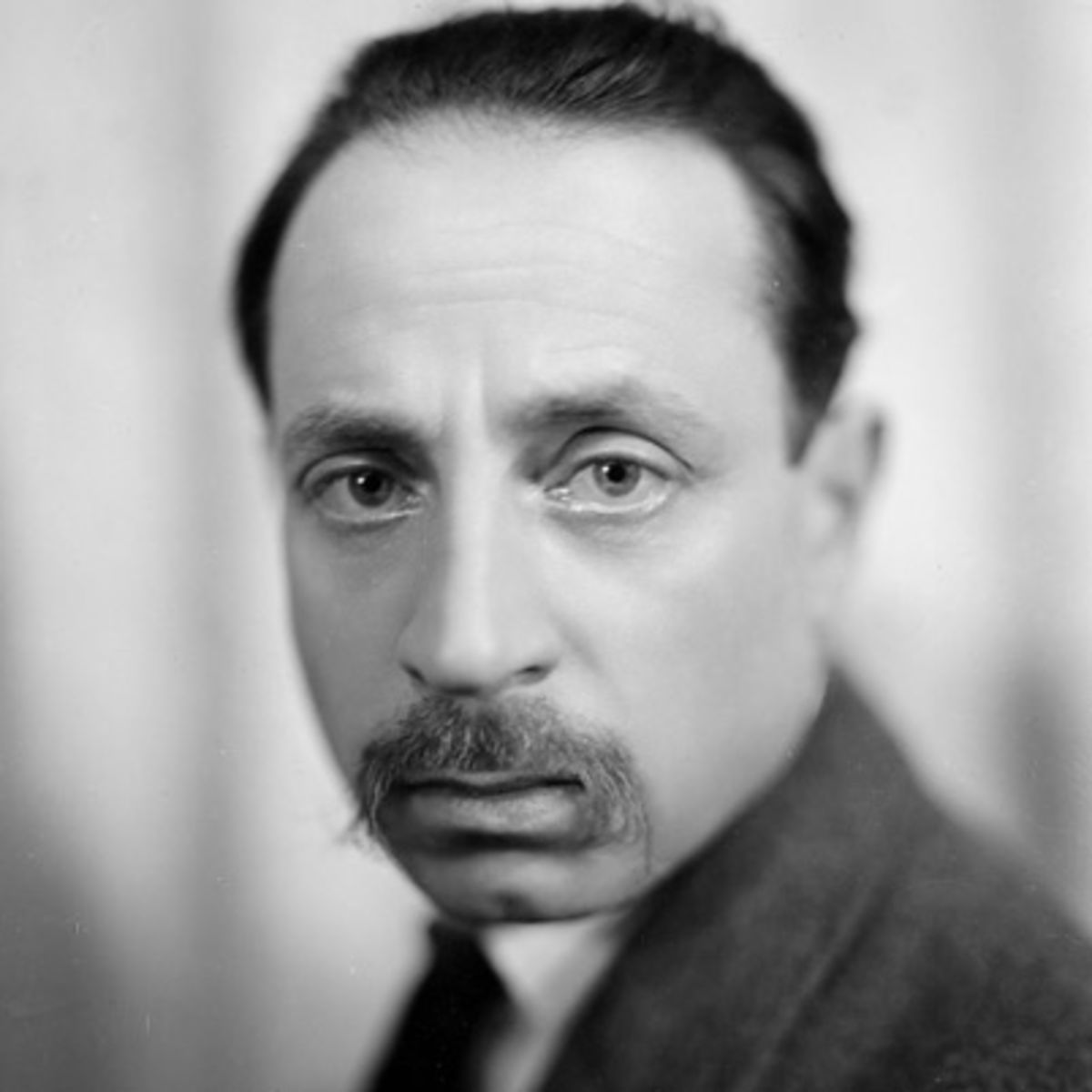Featured Poem: The Song of the Beggar by Rainer Maria Rilke

This week's Featured Poem comes from Rainer Maria Rilke, an influential Bohemian-Austrian poet and novelist, thought to be one of the most lyrically-intense German-language writers.
Born in Prague, then the capital of Bohemia, in 1875, René Karl Wilhelm Johann Josef Maria Rilke's childhood was not a particularly happy one. His parents' marriage fell apart in 1884. His father was a railway official with an unsuccessful military career behind him while Rilke's relationship with his mother was strained. She mourned the death of an earlier child, a girl who has died at one week old, and often dressed Rilke in girls' clothing as a baby.
Rilke was poetically and artistically talented but his parents pressured him into attending a military academy at the age of 11. He left the academy in 1891, owing to illness. He published his first collection of poetry in 1894 and after much tutoring he passed the university entrance exam in 1895, going on to study literature, art history and philosophy in Prague and Munich.
While in Munich Rilke fell in love with Lou Andreas-Salomé, a widely travelled, intellectual woman of letters who persuaded him to change his first name from Rene to Rainer in an effort to sound more masculine, forceful and Germanic. Andreas-Salomé was married but their affair lasted until 1900 and she continued to be Rilke's most important confidante throughout his life.
Rilke travelled extensively during his relationship with Lou, undertaking two extensive trips to Russia where he met Leo Tolstoy and Spiridon Drozhzhin, a peasant poet. The Prague and Russian cultures were to be key influences on his poetry and in 1900 he stayed at an artists' colony at Worpswede where he met and married the sculptor Clara Westhoff.
Their daughter Ruth was born a year later but by the summer of 1902 Rilke had left home to travel to Paris for work. Clara joined him there shortly afterward, leaving their daughter with her parents. Their relationship continued for the rest of Rilke's life however their divorce had only been bureaucratically hindered by his Catholic status.
I nitially, Rilke had a difficult time in Paris but he fell in love with the modernist movement, working closely with the sculptor Rodin whose influence dramatically transformed Rilke's poetic style. His 1907 collection New Poems demonstrated this rejuvenated artistic vision, followed by further collections of verse in 1908 and 1909 and a novel The Notebooks of Malte Laurids Brigge about his earliest, difficult days in Paris, in 1910.
nitially, Rilke had a difficult time in Paris but he fell in love with the modernist movement, working closely with the sculptor Rodin whose influence dramatically transformed Rilke's poetic style. His 1907 collection New Poems demonstrated this rejuvenated artistic vision, followed by further collections of verse in 1908 and 1909 and a novel The Notebooks of Malte Laurids Brigge about his earliest, difficult days in Paris, in 1910.
During a stay in Trieste between 1911 and 1912, Rilke began Duino Elegies, which was to remain unfinished for a decade. He was in Germany when war was declared and was prevented from returning to Paris. His property there was confiscated and auctioned off. He spent much of the war in Munich but was conscripted in 1916 and went to Vienna to undertake basic training. Influential friends interceded to secure Rilke a role in the War Records Office and he was discharged from the military on June 9 that year. The impact of this short military service brought Rilke back to the trauma of the military academy he'd attended in his adolescence and completely silenced him as a poet for some time.
In 1919 he moved to Switzerland to take up a lecturing job in Zurich, escaping post-war Germany. It was a transient time for Rilke, moving from residency to residency, but he finally settled in the Château de Muzot in 1921 and entered an intense creative period. He finally completed Duino Elegies in several weeks in February 1922. The same period also produced Sonnets to Orpheus, and financial security in the form of a new patron Werner Reinhart.
His creative success continued in the coming years but his health suffered greatly.He was diagnosed with leukemia and died in the arms of his doctor in December 1926.
The Song of the Beggar
I am always going from door to door,
whether in rain or heat,
and sometimes I will lay my right ear in
the palm of my right hand.
And as I speak my voice seems strange as if
it were alien to me,
for I'm not certain whose voice is crying:
mine or someone else's.
I cry for a pittance to sustain me.
The poets cry for more.
In the end I conceal my entire face
and cover both my eyes;
there it lies in my hands with all its weight
and looks as if at rest,
so no one may think I had no place where-
upon to lay my head.
(Translated by Albert Ernest Flemming)
Rainer Maria Rilke
Share
Related Articles

Storybarn Book of the Month: Saving the Butterfly
This month, as part of Refugee Week (16-22 June), we've been taking a look back at one of our favourites…

June’s Stories and Poems
This month we are celebrating the natural world, and especially the many wonderful creatures that live within it, with June’s…

April’s Monthly Stories and Poems
Our year of Wonder with The Reader Bookshelf 2024-25 is coming to a close – though we won’t be putting…


